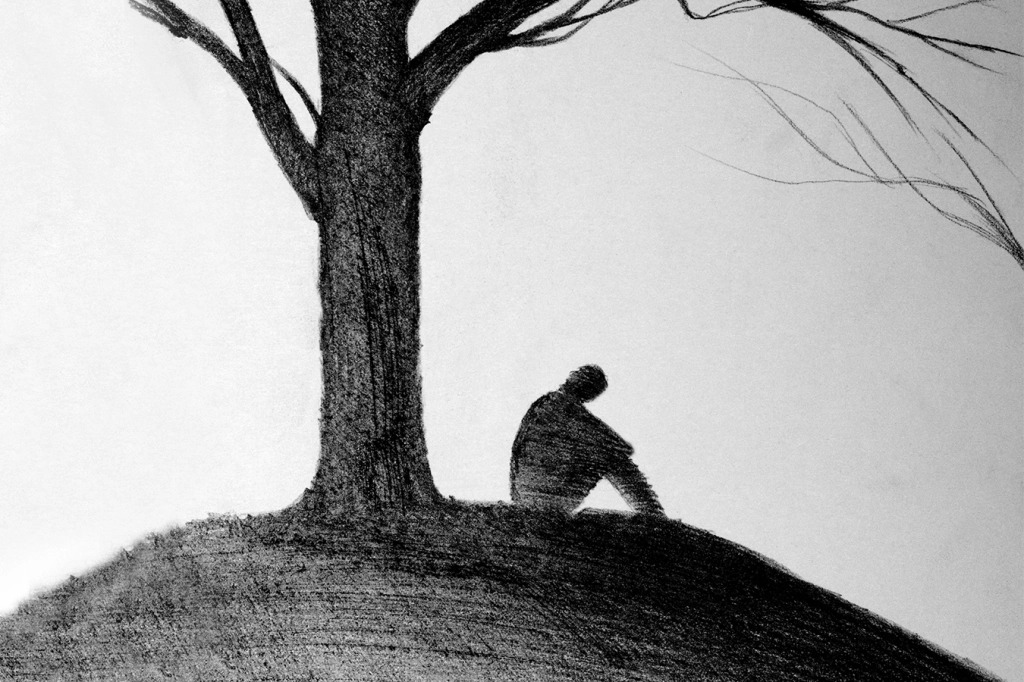LISTEN TO THIS ARTICLE:
Should we view grieving the loss of a loved one as an illness? This has been a point of contention in the psychiatric community for years, and it has become even more significant during the pandemic. Earlier this year, the American Psychiatric Association (APA) released a new version of the Diagnostic and Statistical Manual of Mental Disorders (that’s the official catalog of mental illnesses, the DSM). This revision introduced the new diagnosis of Prolonged Grief Disorder.
What is Prolonged Grief Disorder?
Prolonged Grief Disorder happens when people experience extreme symptoms of grief over one year after a loved one passed. People continue to suffer a great deal of emotional pain and loneliness because of their loss. Additionally, this is interspersed with feelings of numbness and futility. They have trouble accepting the person is gone and avoid reminders of that. These people can also feel like they are missing a part of themselves, that something critical to their emotional well-being is gone forever.
Researches estimate that up to 1 in 10 people who lose a loved one end up suffering from Prolonged Grief Disorder. It isn’t just this new “disorder,” though. These people are at higher risk of high blood pressure, cancer, and suicide.
Negative public reaction
The introduction of Prolonged Grief Disorder caused a unique, mixed public reaction. Drawing a line in the sand to separate a ‘normal’ experience from a ‘sickness’ has always been a crux when discussing mental illness. In fact, the studies supporting the creation of the new diagnosis originally recommended that the cutoff be at 6 months. The APA ultimately pushed that out to a year to avoid more severe public backlash. In spite of that goal, when many people hear this, it may make the cutoff seem even more arbitrary.
“Abnormal” grieving
To say that grief is “abnormal” seems cold to many people. Some feel it’s especially callous in light of the pandemic, which has killed close to 1 million Americans. They people point out that this hard and fast definition does not allow for cultural differences. It also doesn’t take into account different circumstances surrounding the loss.
Wouldn’t you expect a loss of a spouse after 40 or 50 years of marriage to take more than a year to resolve? Who dares to say that a mother should ever fully recover from the loss of a child she brought into the world? Sometimes when we lose someone, it really is like we lost a part of ourselves, and this diagnosis calls that an illness.
These people argue that grieving is a natural process and that we should respect individual differences. They say it doesn’t help to put doubt into the heads of people who already feel down and vulnerable. A few people even fear it’s a money scheme: Create a new diagnosis so you can have another reason to have them keep coming back. (Let me be clear right now: Doctors want to help. We do not see patients as walking dollar signs.)
How the new diagnosis helps
On the flip side, proponents of this new diagnosis make several compelling points. One of the most immediate benefits of making prolonged grief an official disorder is that it makes more resources available. Until very recently, little research focused on treating prolonged grief, but that is changing. This is much needed, as it turns out traditional antidepressants don’t work well for prolonged grief. New research with naltrexone, which is also used for addiction treatment, shows promise. Medications like this could be crucial to quickly managing the suicidal symptoms of Prolonged Grief Disorder.
Drugs aren’t the whole story of treatment, though. In fact, some of the researchers who investigated prolonged grief have been working on a special therapy course. Prolonged Grief Disorder Therapy (PGDT), developed at the Center for Prolonged Grief at Columbia University, works off of a standardized manual and lasts 16 sessions. It’s more effective than regular, interpersonal counseling, but not all therapists offer it.
Diagnoses are a fundamental part of psychiatry. While it may seem oddly timed in combination with the pandemic, the foundations of Prolonged Grief Disorder go back decades. In fact, in the previous edition of the DSM, there was a provisional diagnosis of “Complicated Grief Disorder” that has grown into what we have now. Tons of research goes into this process, and decisions are not made lightly. You can rest easy knowing that this new diagnosis will help a lot of suffering people.
If you are struggling with a mental health issue, try our symptom checker and find a provider!
